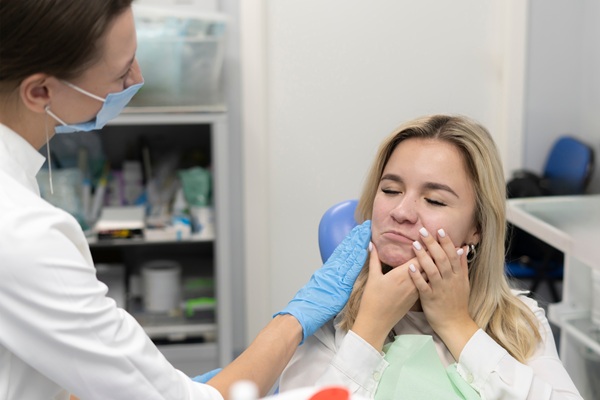 Brushing and flossing teeth are critical oral hygiene basics that everyone should include in their care routines. Many people already know the proper procedures and benefits of brushing their teeth regularly, but flossing sometimes gets left out. In fact, according to U.S. News, only about 30% of the population in the United States flosses daily. Good oral hygiene helps prevent decay, diseases, and other systems issues within your body. To help maintain your overall wellbeing, including proper flossing in your oral care routine is essential.
Brushing and flossing teeth are critical oral hygiene basics that everyone should include in their care routines. Many people already know the proper procedures and benefits of brushing their teeth regularly, but flossing sometimes gets left out. In fact, according to U.S. News, only about 30% of the population in the United States flosses daily. Good oral hygiene helps prevent decay, diseases, and other systems issues within your body. To help maintain your overall wellbeing, including proper flossing in your oral care routine is essential.
Flossing basics
Flossing is the act of carefully moving a piece of dental floss up and down between each tooth to remove any food particles or plaque that can cause damage. Many dental associations and dental product companies recommend flossing at least one or more times a day to minimize buildup while stimulating healthy gums.
Why floss
Flossing removes any foreign particles stuck between teeth. Having food stuck between your teeth is more than just embarrassing; it can also damage your oral health. When food particles or other residue is left to sit along your gum line or between your teeth in hard-to-brush areas, it can form plaque. Plaque is a sticky deposit from the food and saliva mixture in your mouth. After a time, if not properly removed, plaque will develop into tartar or calculus, which can eventually cause gum disease or other complications.
When to floss
Once-a-day flossing is recommended. Many people prefer to floss before going to bed, so they do not sleep with any food particles or bacteria left to proliferate in their mouths overnight. Other people prefer to keep floss handy and privately floss after every meal or snack to ensure they maintain good oral hygiene basics. No matter the time, make sure to floss at least once a day, every day, to ensure a healthy routine.
How to floss
Flossing is often misunderstood and incorrectly executed. To floss correctly, begin by unraveling a piece of dental floss at least the length of your arm and follow these directions:
- Wrap a length of one end of the floss around the index finger of your dominant hand.
- Secure the tail end with the middle finger of the other hand.
- Leave about three to four inches between your two fingers.
- Gripping the floss, slide a strand between two teeth.
- When you reach the gum line, move it gently up the side of the next tooth.
- Slide the floss out and remove any residue.
- Ravel the used floss to the tail end and unravel new clean floss.
- Repeat the procedure between all teeth.
Conclusion
Adding flossing to your regular care routine will help prevent both gingivitis and periodontitis, two preventable gum diseases that can have lasting consequences for your oral health. Good dental hygiene also helps maintain whole-body health. Building a practice that includes flossing before brushing as part of your oral hygiene basics ensures that you will likely never complete one without the other. Consult with your dentist for more tips on flossing.
Sources:
Request an appointment or call Lilburn Family Dentistry at 770-800-0178 for an appointment in our Lilburn office.
Recent Posts
Keeping up with oral hygiene basics can prevent cavities and other issues with your teeth. Proper daily care can also stop discoloration of the teeth and reduce bad breath. Here are some dental habits that people can benefit from including as part of a daily routine.One of the most important parts of oral hygiene is…
Brushing and flossing are essential oral hygiene basics that help prevent tooth decay and gum disease. While many people pay careful attention to their teeth and gums, the tongue is often neglected. However, this large surface of the mouth should also be cleaned on a daily basis. Doing so can help many people enjoy better…
Although many people believe that plaque and tartar are the same, they actually have significant differences. Understanding the distinctions between these two dental conditions can help you identify their warning signs and practice oral hygiene basics to avoid them.Plaque is a soft film containing millions of bacteria that build up on your teeth, gums, and…


